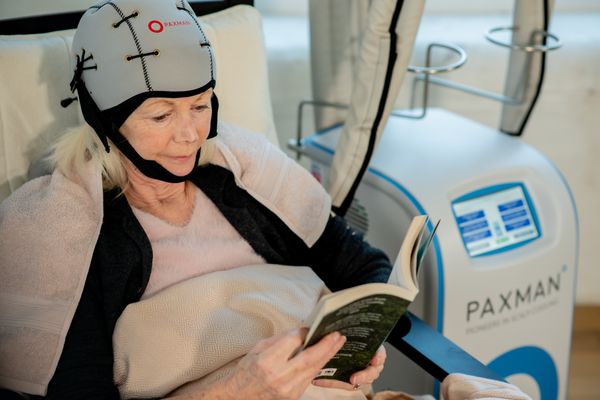When we talk about the war against cancer—a war that, unfortunately, has been going on for a long, long time—there's a basic truth: The best chance of treating a number of cancers is when they're caught early.
But there's another truth, which is sad and frustrating: we cannot screen for and detect every cancer in its early stages. With cancers like pancreatic, ovarian and kidney, they've often grown and spread before they are noticed. By then, it can be too late.
Yet, early detection, although not a perfect science, can be your best bet for treatment and remission or prevention of many cancers.
Colorectal cancer is one cancer that is possible to detect early through regular screening, which can find polyps in their precancerous stages—before they even become cancer—as well as cancer in its early, most treatable stages. Doctors can remove abnormal growths in the colon or rectum before the growths turn from harmless to dangerous. When polyps are detected in early stages (stage I or II), colorectal cancer is extremely treatable. When caught in its precancerous stage, colorectal cancer is even preventable. There usually are no symptoms in early stages of colorectal cancer, so you may not know you have cancer or precancerous polyps—which is why early screening is so important.
Anyone can develop this cancer, but your risk rises if you have a close relative who has had it, if you have a personal history of colorectal polyps or colorectal or ovarian cancer, or if you have inflammatory bowel disease such as ulcerative colitis or Crohn's disease. Certain genetic mutations like familial adenomatous polyposis (FAP) or Lynch syndrome also increase your risk. As you age, your risk also increases, particularly for those over 50 years old.
Some risk factors are under your control, such as: smoking, being overweight or having obesity; eating a diet high in red meats or processed meats, physical inactivity, and heavy alcohol consumption (more than one alcoholic drink per day for women and more than two for men).
I want to stress the importance of early detection of colorectal cancer through screening, as well as healthy lifestyle behaviors and awareness of the signs and symptoms of this disease.
Here are some symptoms of colorectal cancer to watch for:
- A change in bowel habits: diarrhea, constipation, or narrow stools that last more than a few days
- Rectal bleeding
- Dark stools
- Blood in your stool
- Cramps or abdominal pain
- Unintentional weight loss
- Weakness or fatigue
About screening
Most guidelines recommend colorectal cancer screening starting at age 50 for people at average risk. The United States Preventive Services Task Force (USPSTF) colorectal cancer screening guidelines include both invasive and noninvasive options, stating that ultimately, "the best test is the one that gets done." The time between recommended screenings varies depending on the type of test used and the results of the test.
Despite recommendations in prominent guidelines, many individuals still do not get screened. In a recent HealthyWomen survey—sponsored by Exact Sciences—nearly one-third of women polled said they didn't get screened for colorectal cancer because they didn't want to have a colonoscopy. A colonoscopy, usually done under sedation, allows your health care provider to examine your entire colon and rectum and remove any suspicious polyps for testing. However, the preparation is unpleasant—you may need to follow a special diet for a day, and you will have to clean out your colon with strong laxatives. You should plan to take a day off from work and coordinate a ride home from the procedure.
Less than half of the women surveyed said they were familiar with a newer screening test called Cologuard that uses a stool sample to detect signs of colorectal cancer. This FDA approved test is for adults 50 years or older and at average risk for colorectal cancer. It can be done at home, and it does not require preparation. If the test is positive, an indication that blood and/or DNA-associated with cancer or precancer is present, a follow-up colonoscopy is recommended. If the test is negative, you should continue in a screening program as recommended by your health care provider. Cologuard is only available by prescription and not right for everyone, such as those at high risk, so it's important to discuss this and all options with your health care provider.
According to our survey, less than a third of women said their health care providers discussed more than one screening option despite the fact that guidelines recommend patients be presented with choices in order to appropriately determine which option is best for them.
It's important to be aware of all of the options in addition to colonoscopy that you may consider – and all are recommended equally by leading preventive health care guidelines:
- Multitarget stool DNA test (Cologuard), in which a stool sample is analyzed by a lab for DNA mutations and blood in the stool that could be associated with cancer or precancer
- Fecal blood test, that examines a stool sample under a microscope to look for blood in the stool
- CT colonography (also known as a virtual colonoscopy), which takes 2D or 3D scans of the lower gastrointestinal tract to check for suspicious growths
- Sigmoidoscopy, which allows your health care provider to view the lower part of the colon through a thin tube called a sigmoidoscope
When it's time for your colorectal cancer screening, ask your health care provider which of these options is the best one for you. And, whatever you decide, know that by getting screened, you can have peace of mind knowing you are being proactive in your health. Remember that colorectal cancer is preventable when detected early.
- 10 Things Every Woman Should Know About Colon Cancer - HealthyWomen ›
- Fast Facts: What You Need to Know About Colorectal Cancer Screening - HealthyWomen ›
- Colorectal Cancer 101 - HealthyWomen ›
- Navigating a Colorectal Cancer Diagnosis - HealthyWomen ›
- Colon Cancer Screening Options That Aren't a Colonoscopy - HealthyWomen ›
- Who’s Most at Risk for Colorectal Cancer? - HealthyWomen ›
- ¿Quién tiene mayor riesgo de cáncer colorrectal? - HealthyWomen ›
- Guide to Colon Cancer Screening Tests - HealthyWomen ›
- Guía de pruebas para la detección de cáncer de colon - HealthyWomen ›






